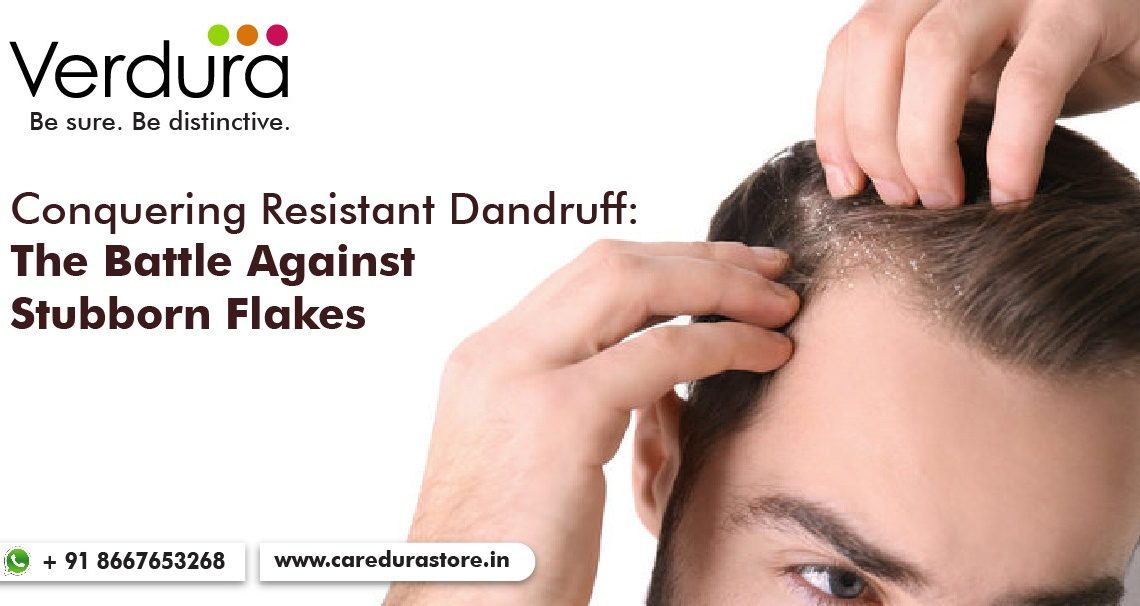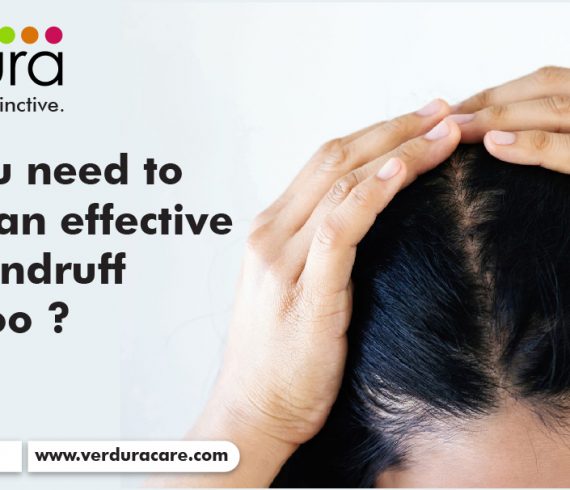

Dandruff is a common scalp condition that affects millions of people worldwide. While dandruff is generally not harmful, it can be a nuisance and even embarrassing, particularly when it is resistant to treatment. Many people struggle to find a solution for their persistent dandruff, but why is dandruff so resistant in the first place?
The root cause of dandruff is an overgrowth of a yeast-like fungus called Malassezia, which is naturally present on the scalp. Malassezia feeds on the oils produced by the scalp, and when it proliferates, it causes irritation and inflammation, leading to the characteristic flakes of dandruff. However, not all dandruff is created equal. Resistant dandruff may be caused by a combination of factors, including genetics, environmental factors, and other underlying health conditions.
One of the primary reasons why dandruff can be so resistant is that the Malassezia fungus is highly adaptable and can quickly develop resistance to commonly used treatments. Over time, the fungus may become resistant to antifungal shampoos, which can make them less effective. Furthermore, some people may be predisposed to resistant dandruff due to their genetic makeup, making it harder to treat.
Here are some of the most effective treatments for resistant dandruff:
- Medicated Shampoos: Antifungal shampoos containing active ingredients such as ketoconazole, selenium sulfide, or zinc pyrithione can be effective in managing dandruff caused by Malassezia. However, if your dandruff is resistant to these over-the-counter shampoos, you may need to consult a dermatologist for a stronger prescription-strength shampoo.
Verdura anti-scaling scalp shampoo is a best anti-dandruff solution for those struggling with scalp psoriasis, dandruff and seborrheic dermatitis. This innovative product uses ‘multi-prong ultra-permeation technology’ to penetrate deep into the scalp and exfoliate excessive scales and dandruff.
Its dual anti-dandruff agents, Climbazole, and Zinc pyrithione, work together to kill dandruff-causing microbes in just two minutes, providing fast relief from itching and flaking. Not only does it effectively treat these conditions, but it also leaves hair feeling soft, manageable, and tangle-free thanks to its select conditioners.
It is proven to be hypoallergenic and safe for long-term use, making it an excellent choice for those who suffer from persistent scalp conditions. So if you’re looking for a reliable solution for your scalp psoriasis or dandruff, try Verdura anti-scaling scalp shampoo and experience the difference.
- Topical Treatments: In some cases, topical treatments such as corticosteroids or calcineurin inhibitors may be prescribed to reduce inflammation and itching associated with dandruff. These treatments are often used in combination with medicated shampoos for maximum efficacy.
- Dietary Changes: While diet may not directly cause or cure dandruff, eating a healthy and balanced diet rich in essential nutrients can help support overall scalp health. Foods such as fatty fish, nuts, and leafy greens are rich in vitamins and minerals that can support healthy hair and scalp.
- Lifestyle Modifications: Lifestyle factors such as stress, lack of sleep, and poor hygiene can contribute to dandruff. Taking steps to reduce stress, improve sleep, and maintain good hygiene habits can help reduce the severity of dandruff symptoms.
5.Risk Factors for Resistant Dandruff: Some people may be more prone to resistant dandruff due to underlying health conditions such as psoriasis, eczema, or hormonal imbalances. These conditions can make the scalp more susceptible to Malassezia overgrowth and make dandruff harder to manage.
6.Scalp Care: Proper scalp care can go a long way in preventing and managing dandruff. Regular shampooing with a gentle, non-irritating shampoo can help remove excess oil and dead skin cells from the scalp, reducing the risk of Malassezia overgrowth. Using a scalp brush or massager can also help stimulate circulation and promote healthy scalp function.
7.Alternative Therapies: Some natural remedies, such as tea tree oil, aloe vera, or apple cider vinegar, may have anti-inflammatory or antifungal properties that can help reduce dandruff symptoms. However, it’s important to use caution when using these remedies, as they may cause allergic reactions or skin irritation in some people.
8.Follow-up Care: Resistant dandruff may require ongoing treatment and management to prevent recurrences. Regular follow-up appointments with a dermatologist can help monitor your scalp health and adjust your treatment plan as needed.
In conclusion, while dandruff can be a frustrating and stubborn scalp condition, it’s not something that you have to suffer from indefinitely. By taking proactive steps to address the underlying causes of resistant dandruff, you can effectively manage the condition and enjoy healthy, flake-free hair and scalp. Remember, it’s important to be patient and persistent when treating dandruff, as it may take time to find the right combination of treatments that work for you. With the right care and attention, you can conquer resistant dandruff and say goodbye to stubborn flakes for good!



